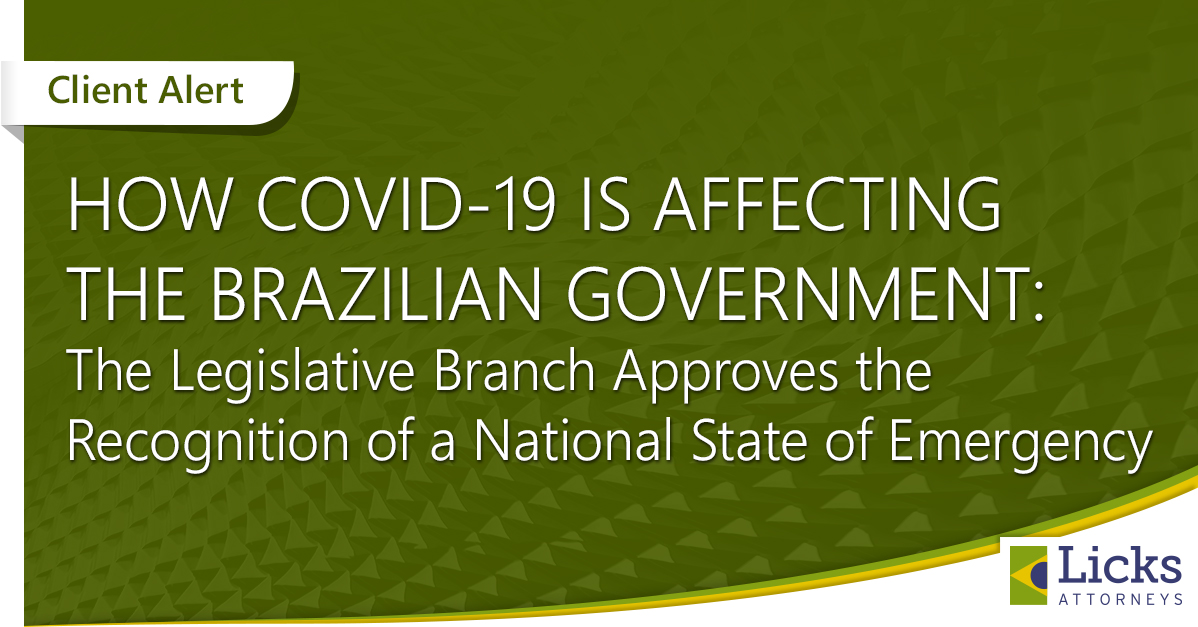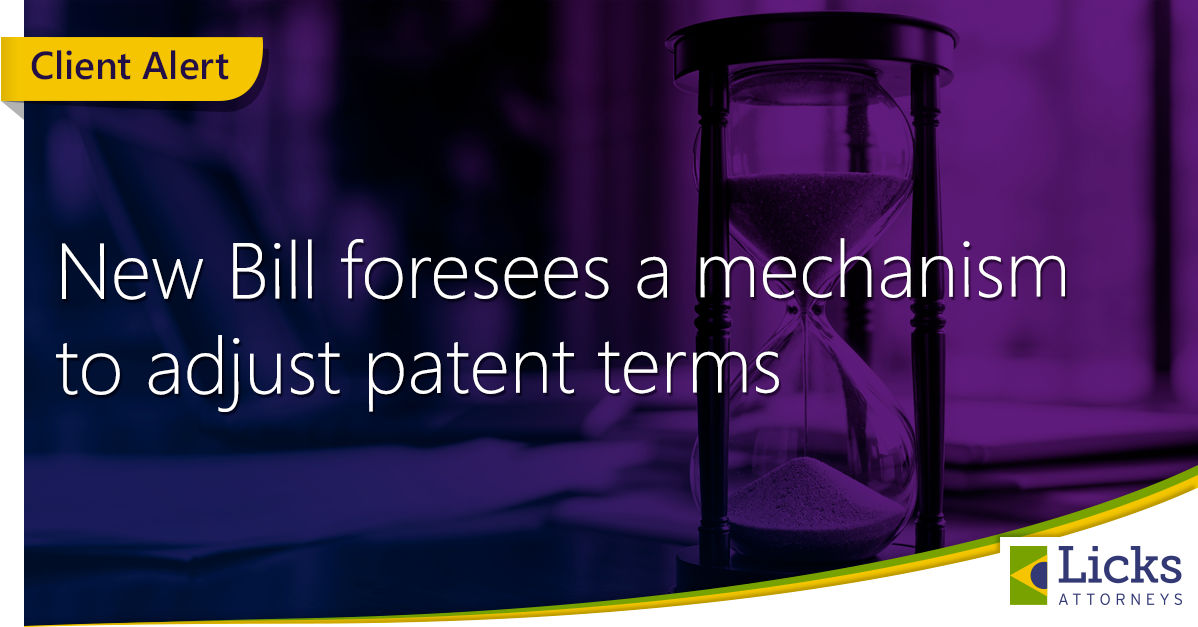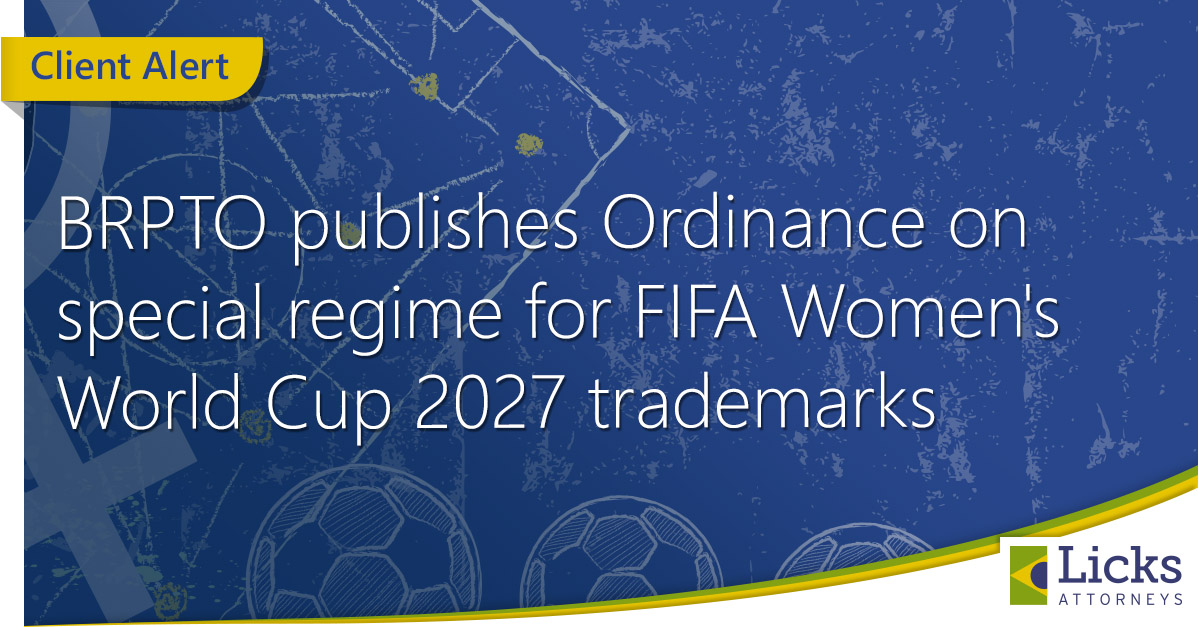How Covid-19 Is Affecting The Brazilian Government

On Wednesday, March 18th, the House of Representatives approved the Legislative Decree Draft (PDL) #88 of 2020, which requests the recognition of a national state of emergency in Brazil. The draft, presented in response to a request sent by President Jair Bolsonaro on the same day, was also approved by the Senate during the first remote deliberative session held by the Brazilian Congress. The Legislative Decree comes into force immediately and does not require the President’s sanction.
The Fiscal Responsibility Law (LRF) provides for the recognition of a national state of emergency as a temporary condition, which suspends the deadlines for adjusting personnel expenses and indebtedness limits, and for the adoption of expenditure contingency.
This measure will allow the Government to spend more than it had initially projected on its official budget until December 31st, 2020, and, therefore, to be exempt from complying with the fiscal target established for the year. Emergency actions, such as increasing resources to strengthen the states’ public health system, will be taken to contain the spread and the effects of the virus.
The Legislative Decree also creates a Mixed Committee, formed by six Representatives and six Senators, whose core competence will be to monitor the Executive Branch’s actions. The Committee will have monthly meetings with members of the Ministry of Economy, such as Minister Paulo Guedes, to assess how public resources are being used in the emergency measures related to Covid-19.
CONGRESS ACTIVITIES
Last Tuesday, March 17th, the House of Representatives and the Senate agreed on procedures to use a remote system that will allow Congressmen to discuss and vote on matters from a distance.
The Remote Deliberation System (SDR) is expected to be completely available and functional next week. Board members and party leaders will stay in Brasília to coordinate the work, ensuring the rapid discussion and voting of matters.
The sessions held through the SDR will be virtual and must be called at least 24 hours in advance - unless they are held in sequence - for deliberation on legislative matters of urgent nature, that is, those that cannot wait for the situation to normalize. Each session will have a single agenda item and a maximum duration of up to six hours, extendable by the Speaker for the necessary time, depending on the urgency of the matter.

OTHER GOVERNMENT’S MEASURES
The Federal Government announced a series of measures to deal with the Covid-19 crisis, such as the creation of special lines of credit, tax exemption for medical products, and financial aid to the most affected companies, such as the airlines. President Jair Bolsonaro announced this Thursday that he published Ordinance #125 of 2020, which determines the temporary closure of Brazil’s terrestrial borders with neighboring countries such as Argentina, Bolivia, Colombia, Guyana, French Guiana, Peru, and Paraguay. This measure will be taken for 15 days.
Outside Latin America, the Government has also chosen to restrict the entry into the country by air for 30 days for people from Europe and several Asian countries, such as China, Japan, South Korea, European Union countries, and the United Kingdom. This measure was determined through Ordinance #126 of 2020. The transport of goods will remain authorized, as will be the entry into the country of native or naturalized Brazilians, immigrants with a permanent residence permit, and foreign professionals on diplomatic or humanitarian missions.
See the portuguese version here



